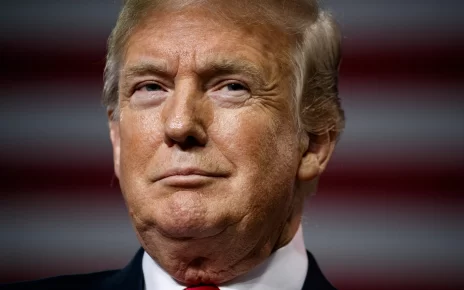
The Trump administration is facing a major test in how it handles the Justice Department’s efforts to keep witness testimony under wraps in a high-profile criminal case.
On Tuesday, the Justice Department sought a 90-day delay in the trial of Michael Flynn, President Donald Trump’s former national security adviser, to accommodate a gag order requested by the former lieutenant general. The gag order, backed by Flynn and his lawyers, would prevent further public comments about the case after his indictment by special counsel Robert Mueller on charges of lying to the FBI about his contacts with a Russian official.
But hours later, Trump attacked the lead witness in the case — another former high-ranking White House official, John Dowd. In a tweet that took aim at Dowd’s credibility, Trump said he had been “disrespected” by the special counsel.
The move by Trump could have major implications for the Justice Department’s efforts to keep secret key information in the case, even a gag order. Trump’s comments are indicative of mounting pressure on the Justice Department to weigh the president’s views in determining how to handle the gag order and in other facets of the criminal investigation.
“It’s putting the Justice Department in a very difficult position,” said Paul Rosenzweig, a former Department of Homeland Security official and senior fellow at the R Street Institute think tank. “It’s unclear what effect his tweet will have on the gag order or on the underlying case. But it surely puts the Justice Department in a difficult position.”
It’s also unclear how the DOJ will eventually decide to handle the gag order and the case involving Flynn. But Rosenzweig said he believes the department will likely want to remain objective and independent in its decisions, despite the president’s social media comments.
“The Justice Department’s policy historically has been to interpret the law and make decisions independently and without bias or prejudice,” Rosenzweig said. “And while the president’s tweets obviously carry a lot of weight, the lessons of Watergate remind us that the Justice Department needs to be independent in its decisions and should not be influenced by the president.”
Trump’s comments could also have long-term implications for the Justice Department’s approach to witnesses in criminal cases, Rosenzweig added.
“I think one of the dangers of the president’s tweets is that it could set the precedent that the Justice Department should consider the opinions of the president when deciding how to handle a witness in a criminal case,” Rosenzweig said. “That could be very concerning for the future of criminal law in this country.”


